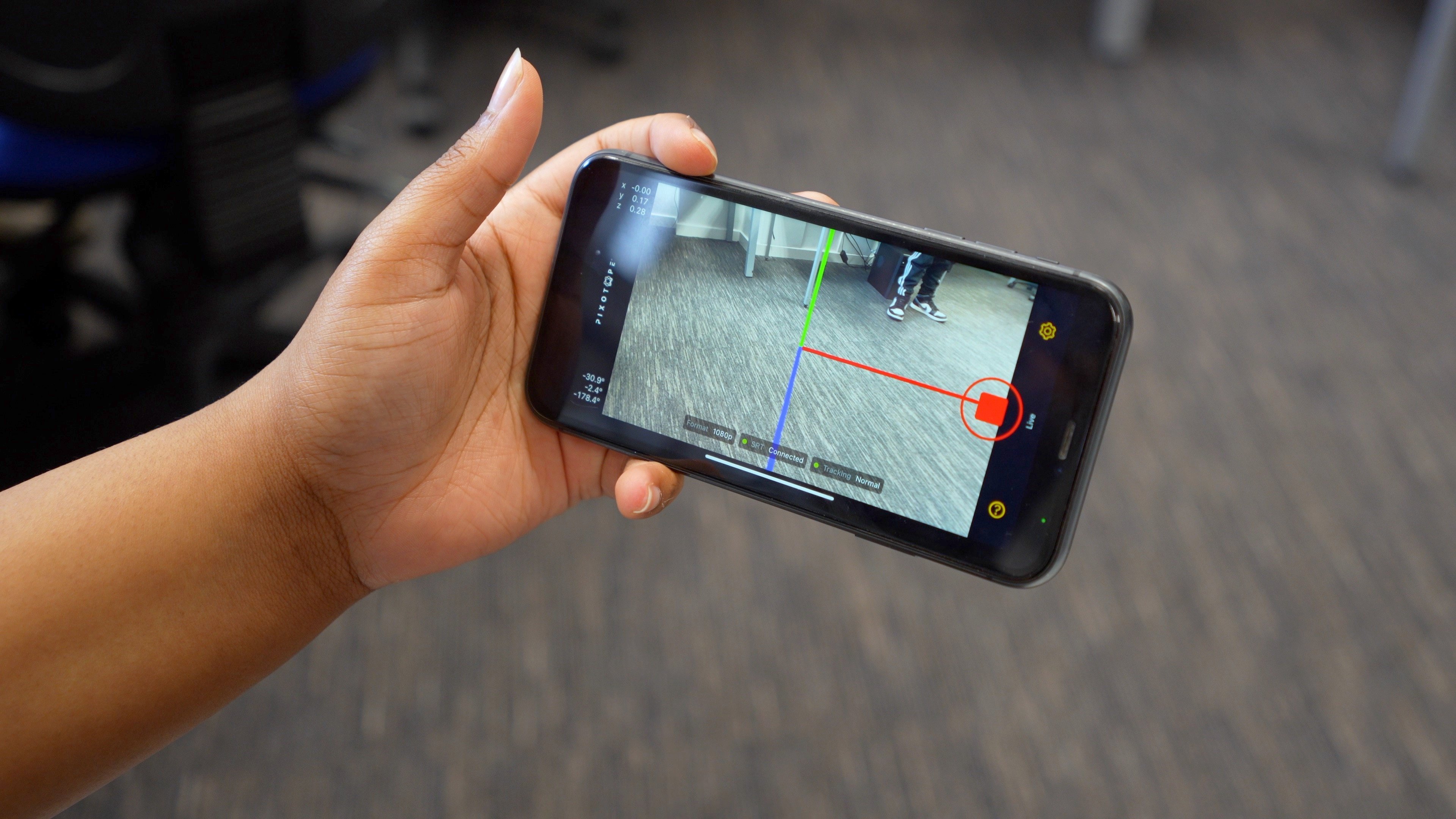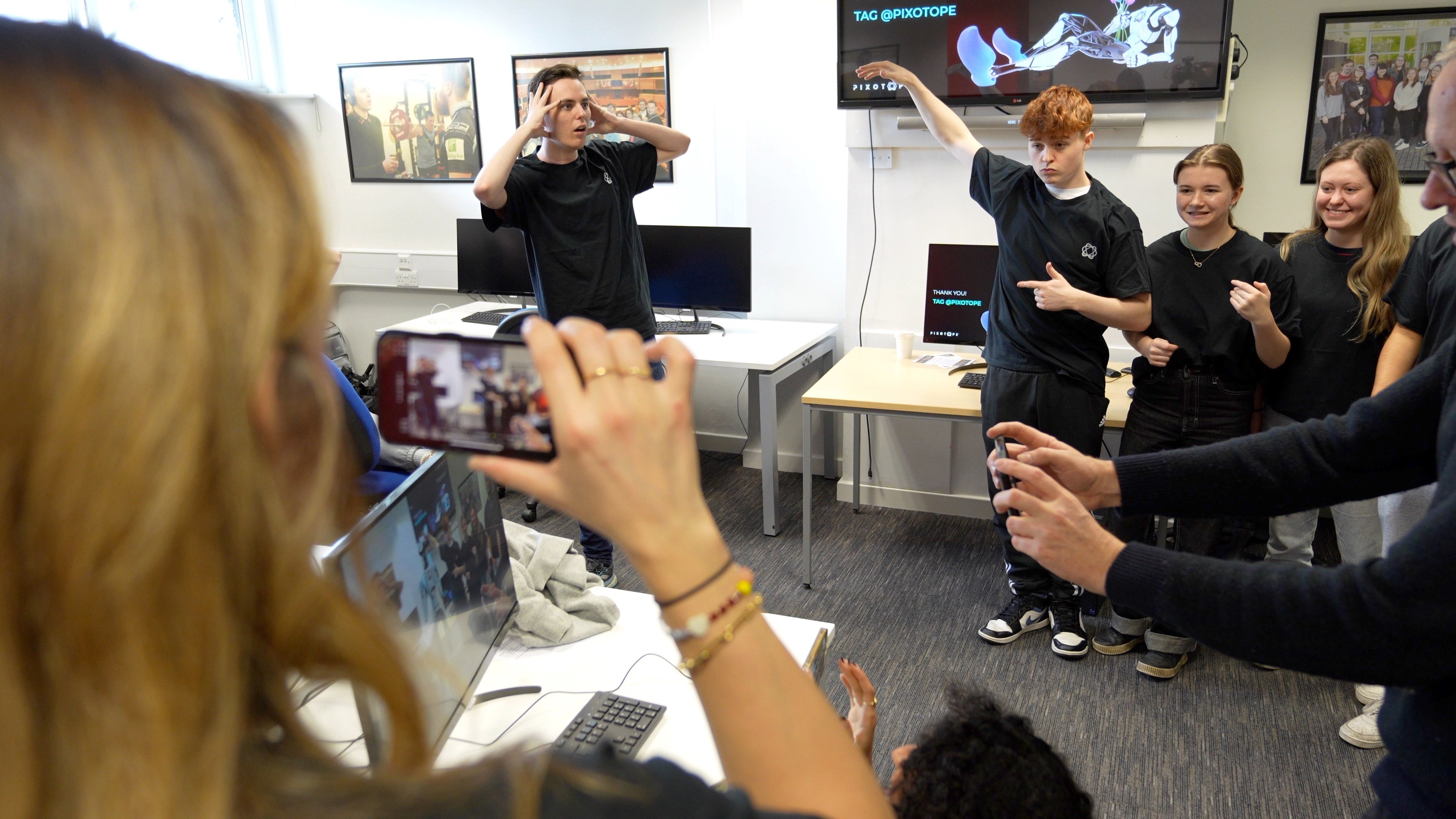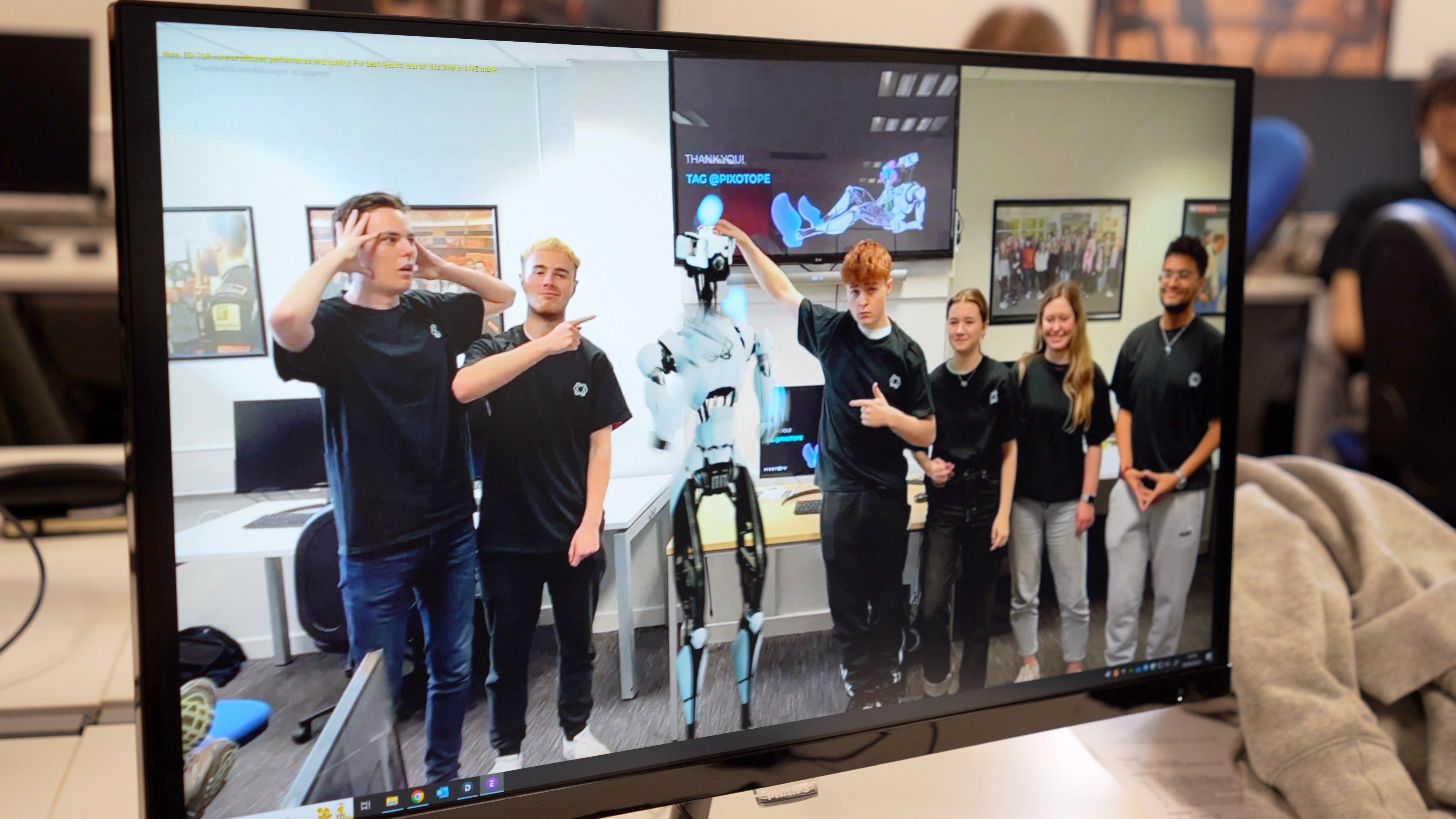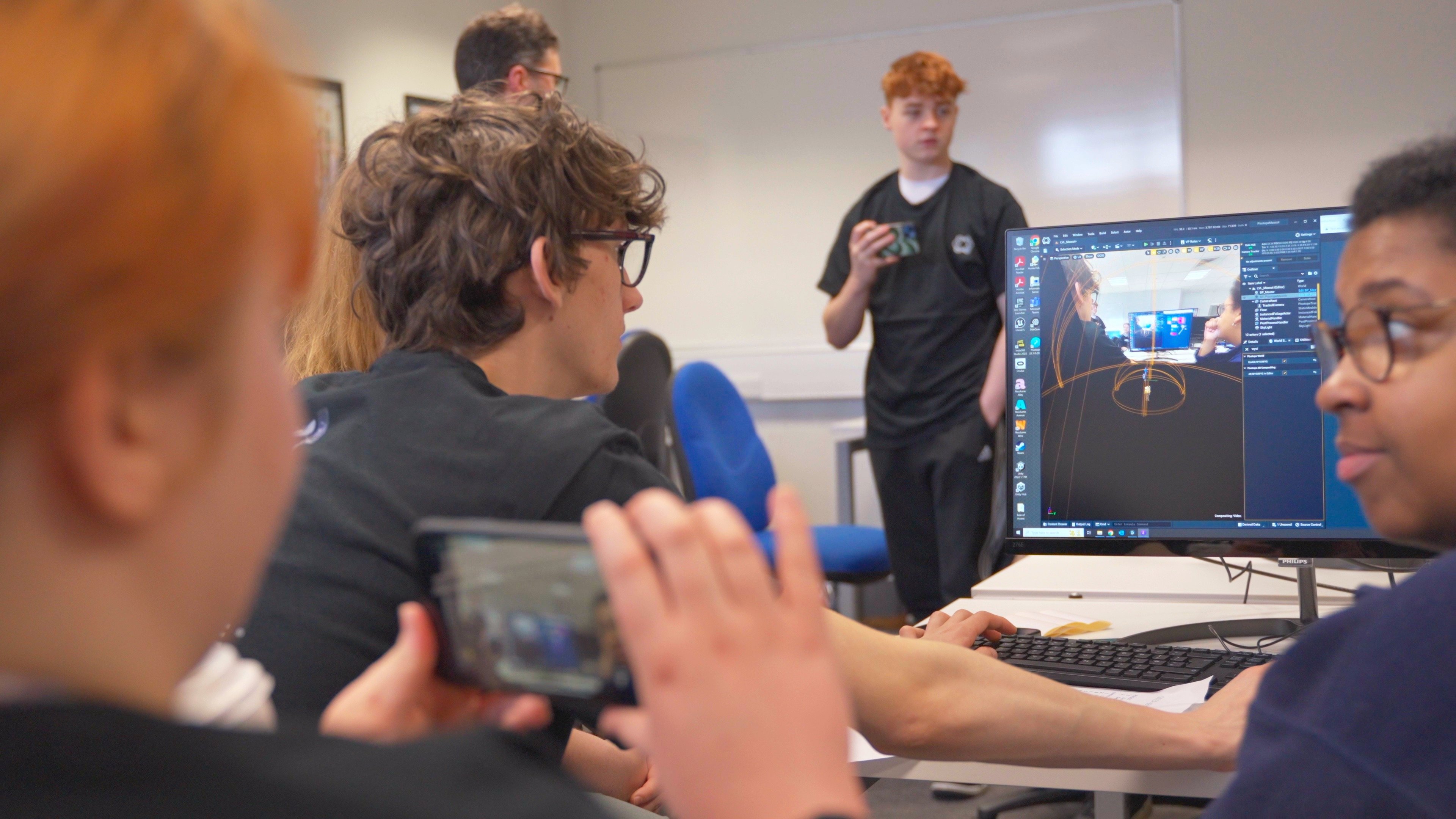New mobile application enables students to use their mobile devices to produce immersive creative content with virtual production.
Pixotope just completely changed the game for virtual production education with the release of Pixotope Pocket. Available as part of the Pixotope Education Program, the app gives aspiring virtual production professionals what they need most: easy, unfettered access to augmented reality (AR) and virtual studio (VS) tools and workflows. Circumventing the need for a fully equipped studio, students need only a smartphone running the latest iOS and a PC to create powerful and immersive content anywhere, even dorm rooms.

Pixotope Pocket enables students to create immersive content with virtual production anywhere they can take their phone.
“The introduction of Pixotope Pocket represents the next evolution of the Pixotope Education Program. While we’ve made great strides in addressing the virtual production skills gap, we knew the technology could be made even more accessible to aspiring creators. The first step was to provide students access to our platform via their media facilities through the Pixotope Education Program. With Pixotope Pocket we are taking this one step further.”
Carina Schoo, Pixotope Education Program Manager


Before (top) and after (below): students from Pixotope Education Program partner, University of Gloucestershire, experiment with adding augmented reality (AR) elements to their scene with Pixotope Pocket.
“The virtual production skills gap is often cited as one of the main barriers to adoption. This is because getting the technology into the hands of tomorrow’s creatives has historically been cost and resource-prohibitive. Pixotope Pocket addresses that head on and makes the technology even easier to access and use. The result is an exponential increase in opportunities for students to hone their skills outside of their school’s media production labs.”
David Dowling, Pixotope Chief Revenue Officer
With the introduction of Pixotope Pocket, the Pixotope Education Program expands the ways in which students can engage with virtual production tools and workflows. Students can now access virtual production tools via both their school's existing media production infrastructure and their own technology.
Pocket-Sized Pixotope-Powered Virtual Production
Unlike traditional AR and VS workflows, with Pixotope Pocket there is no need for a professional camera plus specific tracking hardware. The user can use the camera of their mobile phone to shoot footage while Pixotope Pocket takes care of the camera tracking. It does this by combining device motion tracking, camera scene capture, and advanced scene processing. Video and tracking data are transmitted via SRT stream through a local network to the local machine that has Pixotope Graphics installed.
Pixotope Education Program partner, University of Gloucestershire, played a crucial role in bringing Pixotope Pocket to market. To ensure that Pixotope Pocket meets the needs of today’s virtual production students with precision, a group of students from the Digital Media course tested the app in a workshop and provided valuable feedback.

Pixotope Pocket eliminates the need for fully equipped media studio, students need only a smartphone running the latest iOS and a PC to use virtual production tools and workflows.
“In order for our students to succeed in their careers they need to be able to understand technology, whether they’re using it themselves or commissioning someone else to use it. It’s very important that we partner with leaders in the industry, like Pixotope, to make the technology more accessible and help our students achieve this understanding.”
Anne Dawson, Head of the School of Creative Industries, University of Gloucestershire

